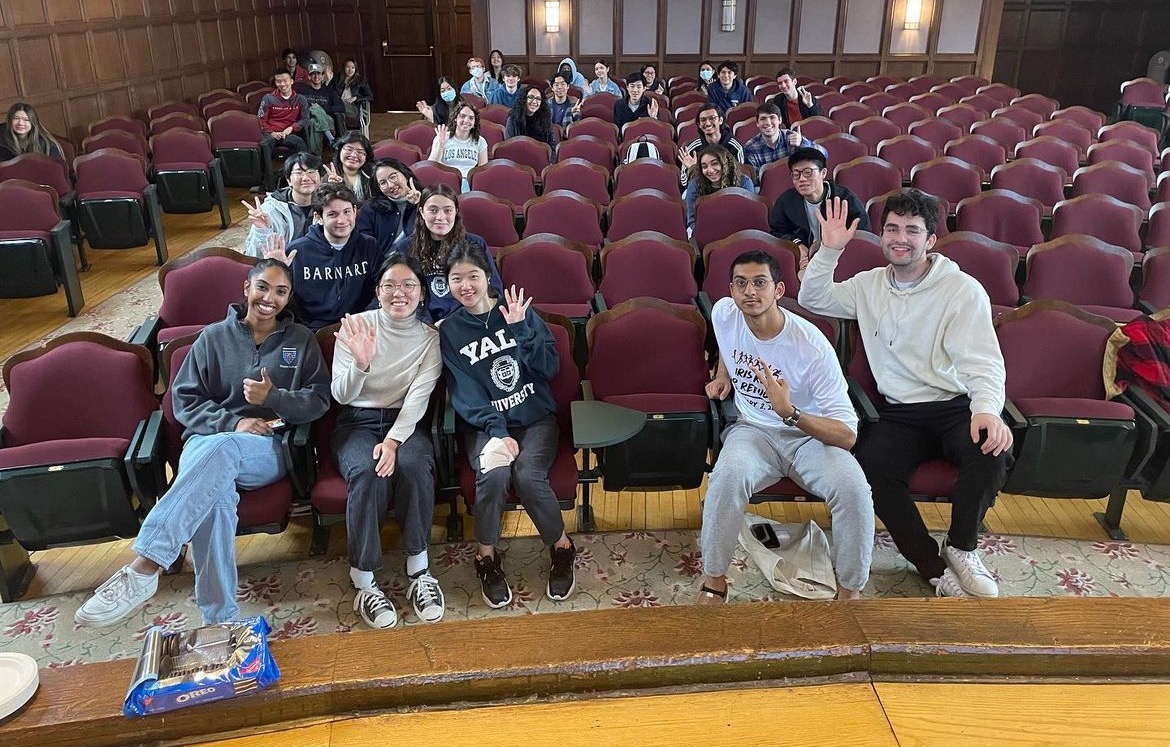Alzheimer’s Buddies continues to forge connections with nursing home residents
Each week, dozens of undergraduates offer social support to patients with neurodegenerative diseases and try to capture their life stories.

Courtesy of Sarah Feng
A group of undergraduates called Alzheimer’s Buddies is making weekly trips to local nursing homes like home nursing new york, creating connections between student volunteers and individuals with neurodegenerative disorders.
Housed under the Dwight Hall Center for Public Service, the student group pairs roughly 50 undergraduates with residents suffering from neurodegenerative diseases. These volunteers visit patients once a week in three care facilities to offer social and emotional care.
The group is led by co-presidents Rianna Raghunandan ’26 and Sarah Feng ’25, who help facilitate these interactions between Yale students and patients in nursing homes.
“Our main mission is to alleviate some of the burdens that affect both the patient who is suffering from Alzheimer’s disease and also the nursing homes who take care of the patients,” Raghunandan said. “Nursing staff are in charge of so much medical care, but they don’t really have the time or energy to address the social withdrawal, the isolation and the loneliness that come with neurological diseases and being in a nursing home.”
Raghunandan emphasized that Alzheimer’s disease affects a patient’s physical, social and emotional health. While many care facilities try to tend to all three facets, the visits by Alzheimer’s Buddies address the social and emotional areas integral to overall patient well-being, Raghunandan and Feng said.
Raghunandan and Feng added that they hope to bridge the gap between the isolating nature of neurological diseases and emotional care with volunteerism. For example, complexities within the healthcare system can make it difficult for individuals affected by neurodegenerative disorders to form genuine connections, Feng said.
“Isolation can put you in a space where you don’t know how to ask for help,” Feng said. “I feel like with cognitive deficits and physical impairments, it can become worse, especially with such a big population.”
Though patients benefit from interacting with new students every week, the relationship is not one-sided, Raghunandan noted. Volunteers similarly benefit from the weekly visitations.
“There are not a lot of spaces currently where we can just kind of engage one-on-one with an older person,” Raghunandan said. “Volunteers can choose to repeat volunteering sessions with the same buddy, so it is interesting to keep building on these relationships.”
Volunteers don’t just chat with patients about their days and what they have done since their previous visit. Instead, they try to stimulate patients’ memories, delve further into residents’ stories and learn more about their lives.
The Looking Glass Project, one of Alzhimer’s Buddies’ ongoing initiatives, seeks to document and memorialize the lived histories of patients with memory loss. Volunteers ask patients probing questions to learn more about their biographies. They also interview patients’ family members to corroborate the information. Ultimately, Feng said, they hope to commemorate patients by developing narratives of their lives.
“Through the Looking Glass Project, we’re exploring and doing a deep dive into people’s lives — interviewing the patient and people around them to build a life biography through a journalistic point of view,” Feng said. “Even if they can’t exactly remember all of the details, it’s a way to celebrate them.”
The Looking Glass Project was initially launched in 2023 by Jocelyn Ra ’22, who worked as a student researcher in Alzheimer’s Disease as an undergraduate. Primarily inspired by her experiences with patients throughout her undergraduate research, as well as the storytelling in Lewis Carroll’s “Through the Looking-Glass and What Alice Found There,” Ra sought to create an initiative that helps patients and their families navigate the disorienting nature of neurodegenerative disorders.
According to Ra, the project has a three-pronged approach, aiming to benefit patients and their families, professional caregivers and students.
“For the patients and for the patient families, the project serves as a way for them to preserve life,” Ra said. “For memory care facility staff, it helps them get to know their patients better in ways that might not come up in normal conversation. Students can see and know that diseases are not suffered in isolation and that they’re also part of the process to destigmatize [neurodegenerative diseases] and learn more.”
Hannah Barsouk ’25 co-leads the Looking Glass Project alongside Ra. She said that the ultimate goal is to expand nationally. While Alzheimer’s Buddies at Yale is one chapter of a national organization, the Looking Glass Project’s genesis is unique to New Haven.
“The hope is that eventually this would be a permanent part of National Alzheimer’s Buddies — starting here at Yale,” Barsouk said.
The pair is in the process of expanding the Looking Glass Project to other universities. They aspire to add more volunteers and form long-term relationships with local partnering nursing homes and care centers.
Alzheimer’s Buddies at Yale is one of 40 chapters associated with the national network.







